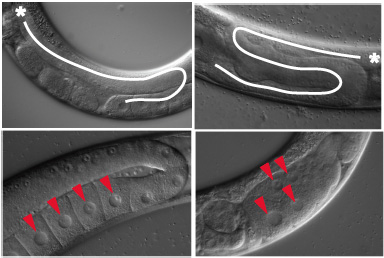Researchers at BRIC, University of Copenhagen, have identified a new gene family (UTX-JMJD3) essential for embryonic development. The family controls the expression of genes crucial for stem cell maintenance and differentiation, and the results may contribute significantly to the understanding of the development of cancer.
All organisms consist of a number of different cell types each producing different proteins. The nerve cells produce proteins necessary for the nerve cell function; the muscle cells proteins necessary for the muscle function and so on. All these specialized cells originate from the same cell type – the embryonic stem cells. In the highly controlled process of differentiation, the stem cells are induced to become specialized cells.

The BRIC researchers have now identified a new gene family, which by modifying gene expression is essential for the regulation of the differentiation process. These results have been obtained by using both human and mouse stem cells, as well as by studying the devel-opment of the round worm, C. elegans.
The new findings are in line with a number of recent publications that support the idea that differentiation may not entirely be a “one-way process”, and may have impact on the therapeutic use of stem cells for the treatment of various genetic diseases such as cancer and Alzheimers disease.
The research was carried out by a team led by Professor Kristian Helin at the new established Centre for Epigenetics at BRIC, University of Copenhagen, in cooperation with researchers at the University of Edinburgh, and the Weizmann Institute of Science, Israel.
Article: Nature Vol. 449





Comments